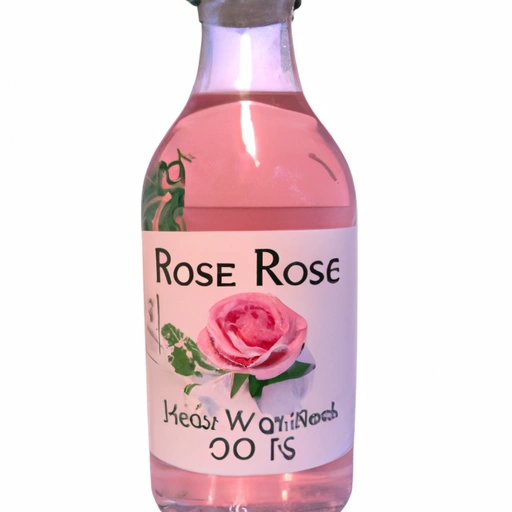Rose Water
Description

Rose water is a fragrant liquid made by steeping rose petals in water. It is a versatile ingredient used in both savory and sweet dishes, offering a distinctive floral aroma that can enhance a variety of recipes. While it is primarily known for its use in Middle Eastern, Indian, and Persian cuisine, rose water has gained popularity worldwide for its delicate flavor and potential health benefits.
Typical measurements of rose water in recipes might be in teaspoons (tsp), tablespoons (tbsp), fluid ounces (fl oz), milliliters (ml), or cups, catering to both American and European units of measure. Depending on the recipe's origin, you might see measurements like 1 tsp (4.9 ml), 1 tbsp (14.8 ml), or 1/4 cup (59 ml).
Common uses
Rose water is commonly used to flavor pastries, desserts, and drinks. It imparts a subtle floral note that complements a variety of ingredients, including fruits, nuts, and spices. Rose water is also used in beauty products for its fragrance and skin-soothing properties.
Nutritional value
Calories
Rose water contains minimal calories, making it a low-calorie addition to foods and beverages.
Protein
It contains negligible protein content.
Fat
Rose water is virtually fat-free.
Carbohydrates
It has a very low carbohydrate content, primarily from natural sugars found in rose petals.
Vitamins
While not a significant source of vitamins, rose water may contain trace amounts of vitamin C depending on the concentration of rose petals used.
Minerals
Some trace minerals can be found in rose water, such as calcium and magnesium, but in very small quantities.
Health benefits
Rose water is renowned for its potential health benefits, including anti-inflammatory and antioxidant properties which may contribute to skin health and aid in digestion. Its calming effect on the skin makes it a popular ingredient in skincare routines.
Potential risks
Though generally considered safe for culinary use, excessive consumption of rose water can lead to digestive issues in some individuals. It's also important to ensure that the rose water used in cooking is food-grade and free from harmful chemicals.
Common recipes
Rose water is a key ingredient in traditional recipes such as Turkish delight, baklava, and various puddings and jellies. It is also a popular addition to teas, lemonades, and cocktails for a floral twist.
Cooking methods
Rose water is typically added at the end of the cooking process or used in cold preparations to preserve its delicate flavor and fragrance.
Pairing with other ingredients
It pairs well with ingredients like pistachios, cardamom, raspberries, and lychee. In savory dishes, rose water can complement lamb, rice, and yogurt-based sauces.
Summary
Rose water is a timeless and aromatic ingredient cherished across various cultures for its unique flavor and fragrance. Its culinary versatility and potential health benefits make it an intriguing addition to both traditional and modern recipes. Whether used in small doses to accentuate a dish or as a key flavor component, rose water continues to be a beloved ingredient worldwide.